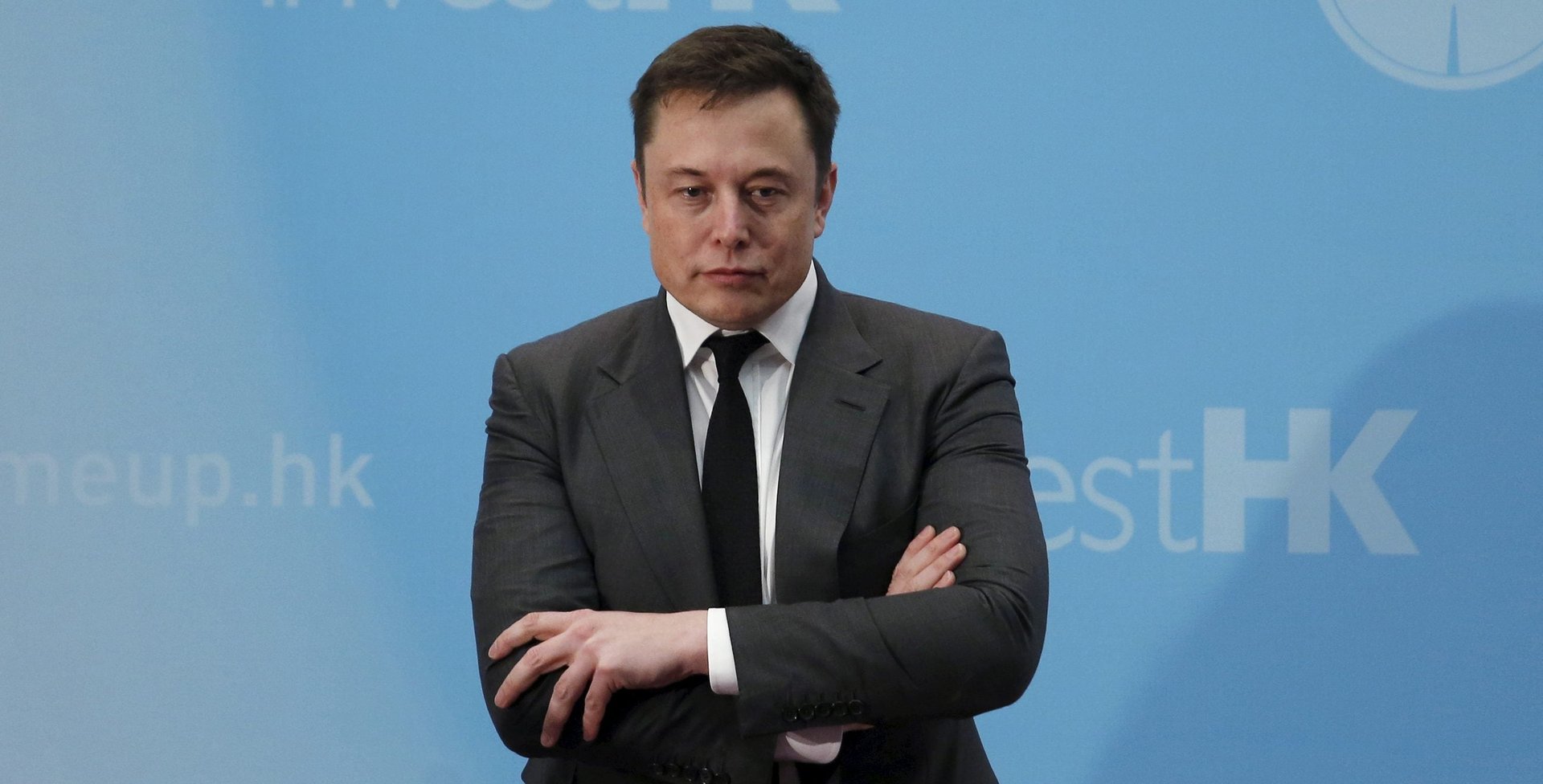The one thing Elon Musk can’t bend to his will: German trade unions
He may be one of the most forceful CEOs in the world, but Elon Musk is proving no match for Germany’s hugely powerful workers union IG Metall.


He may be one of the most forceful CEOs in the world, but Elon Musk is proving no match for Germany’s hugely powerful workers union IG Metall.
Just six months after Tesla acquired Grohmann Engineering in Prüm, a small town near the border with Belgium—calling it “our first acquisition of significance in our whole history”—Musk found himself locking horns with a factory full of disgruntled workers backed by the country’s biggest union.
“We thought it was important that Tesla become, in part, a German company,” Musk said when he took over the manufacturing automation designer, for a reported $150 million. With German companies, of course, come German unions, which occupy around half of all supervisory board seats in the country—and are always ready for a fight.
Things got tense when company founder Klaus Grohmann left the company in March. He was supposed to stay and lead Tesla Grohmann Automation, but Reuters reported that he was let go after clashing with Musk over existing clients (and Tesla rivals) BMW and Mercedes. Musk reportedly wanted the factory management to be focused purely on Tesla.
With their boss gone, unsettled workers began to have concerns about their future since, after current contracts with the likes of BMW ran out, Tesla would be their sole client. They were unhappy with their wage agreement with the new company, as they were getting paid up to 30% less than union rates. IG Metall, who represents the workers, waded in and demanded that Tesla sort out the wage discrepancy or face strike action. “We don’t want promises, we want a commitment,” trade union secretary Patrick Georg told Wired (link in German).
Tesla offered each employee a one-off €1,000 ($1,090) bonus, an extra €150 a month, and €10,000 of Tesla shares distributed over four years to calm the situation. In a letter to employees, Musk said that share options were a more attractive prospect in the long term than a pay increase—but IG Metall said the pay rises were not enough and is reportedly looking to move on to collective bargaining.
Musk took a swipe at the union in his letter to the roughly 680 Grohmann employees, saying: “I do not believe IG Metall shares our mission,” according to Deutsche Presse Agentur.
It’s not the best time for Musk to be tussling with a belligerent trade union. He has committed to ramping up annual production of the cheaper Model 3 sedan to 500,000 cars next year and he needs Grohmann’s expertise in building the “machine that builds the machine” to help him hit that target.
This is the second time in as many months that Musk has had to face threats of union action. Talks of unionization at Tesla’s Fremont, California, factory emerged in February—and the electric-car pioneer was not impressed. In a email to employees, he defended Tesla’s employer record, and called the United Auto Workers’ efforts to unionize the factory “disingenuous.”
He also promised: “There will also be little things that come along like free frozen yogurt stands scattered around the factory and my personal favorite: a Tesla electric pod car roller coaster.” He probably knows better than to try and soothe his German employees and their feisty union reps with a similar offer in Prüm.